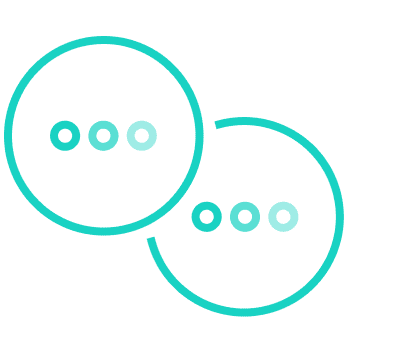Good artificial intelligence (AI) is 'Bard' to find.
At least that’s the lesson of Google’s dive into the world of AI powered chatbots.
Its newest product Bard had what the Guardian newspaper described as “an expensively embarrassing stumble” when it was revealed the chatbot had given an incorrect response to a question.
That was despite Bard’s arrival having been met with fanfare. One of the company’s engineers was so taken with the language model it used he even claimed it may be sentient.
With the world’s biggest companies having AI headaches, it is safe to say this hugely beneficial tool still needs handling with care.
When it comes to recruitment, AI is becoming more and more widely used. For HR departments under pressure to improve their hiring processes and find the very best talent, the temptation to use AI to find quality candidates and create consistency in selection is understandably high.
After all, most of us use AI every day. It helps power the apps on our smartphones and improves our lives as we travel or make purchases.
Everyday examples of AI include:
Netflix using machine learning to recommend TV shows we like.
Facebook using deep learning to recognise and tag users in pictures.
Apple using natural language processing to understand voice commands given to Siri.
Tesla using robotics to pilot self-driving cars.
If used properly by recruiters, AI can help make the hiring process more objective, drawing on a variety of data sources to find the best candidates.
AI is changing talent acquisition by improving:
Sourcing
CRM and candidate experience
Screening and pre-employment vetting
Interview and assessment
Onboarding
There are a wide variety of benefits to implementing AI within talent acquisition, such as its ability to help businesses move faster, be more objective and to provide a better candidate experience.
Despite all those benefits, AI does have its issues.
It can be costly to implement, comes with the potential for bias or discrimination and can be victim to a lack of buy-in.
And that’s all before it potentially gets something wrong – whether that be, like Bard, wrongly suggesting Nasa’s James Webb space telescope was used to take the first pictures of a planet outside of Earth’s solar system, or – in the recruitment world – potentially enhancing levels of bias leading to unfair hiring processes.
Here are some FAQs on AI in recruitment:
What is AI recruitment software?
AI recruitment software refers to tools and platforms that leverage artificial intelligence to streamline and enhance various stages of the hiring process. These tools can help sourcing candidates, screening CVs, conducting pre-employment vetting, and even managing candidate relationships. By analysing data and automating repetitive tasks, AI recruitment software aims to improve efficiency, objectivity, and the overall candidate experience.
What are the benefits of AI in recruitment?
The benefits of AI in recruitment include:
Improved efficiency: AI speeds up the hiring process by automating tasks like CV screening and candidate sourcing.
Enhanced objectivity: by relying on data, AI can reduce human bias in decision-making.
Better candidate experience: AI-powered tools can personalise communication and streamline the application process.
Comprehensive data analysis: AI can draw insights from multiple data sources to identify the best candidates.
Support across the recruitment journey: from sourcing to onboarding, AI can optimise every step of the talent acquisition process.
What are the risks & ethical considerations of AI recruitment?
While AI offers many advantages, it also comes with risks and ethical concerns:
Bias and discrimination: if not properly designed, AI systems can perpetuate or even amplify existing biases in hiring.
High implementation costs: deploying AI solutions can be expensive, making it less accessible for smaller organisations.
Lack of transparency: AI decision-making processes can be opaque, leading to challenges in accountability.
Potential errors: mistakes in AI algorithms can lead to unfair hiring practices or incorrect candidate assessments.
Ethical concerns: the use of AI in recruitment raises questions about privacy, data security, and the fairness of automated decisions.
Can AI replace recruiters?
AI cannot fully replace recruiters. While it excels at automating repetitive tasks and analysing data, human recruiters bring essential qualities like empathy, intuition, and the ability to build relationships. AI is best used as a tool to support recruiters, enabling them to focus on strategic and interpersonal aspects of hiring.
Is AI hiring legal in the UK?
Yes, AI hiring is legal in the UK, but it must comply with existing laws and regulations, such as the Equality Act 2010, which prohibits discrimination in hiring. Organisations using AI in recruitment must ensure that their systems are free from bias and that candidates are treated fairly throughout the process. Transparency and accountability are also critical to maintaining legal and ethical compliance.





